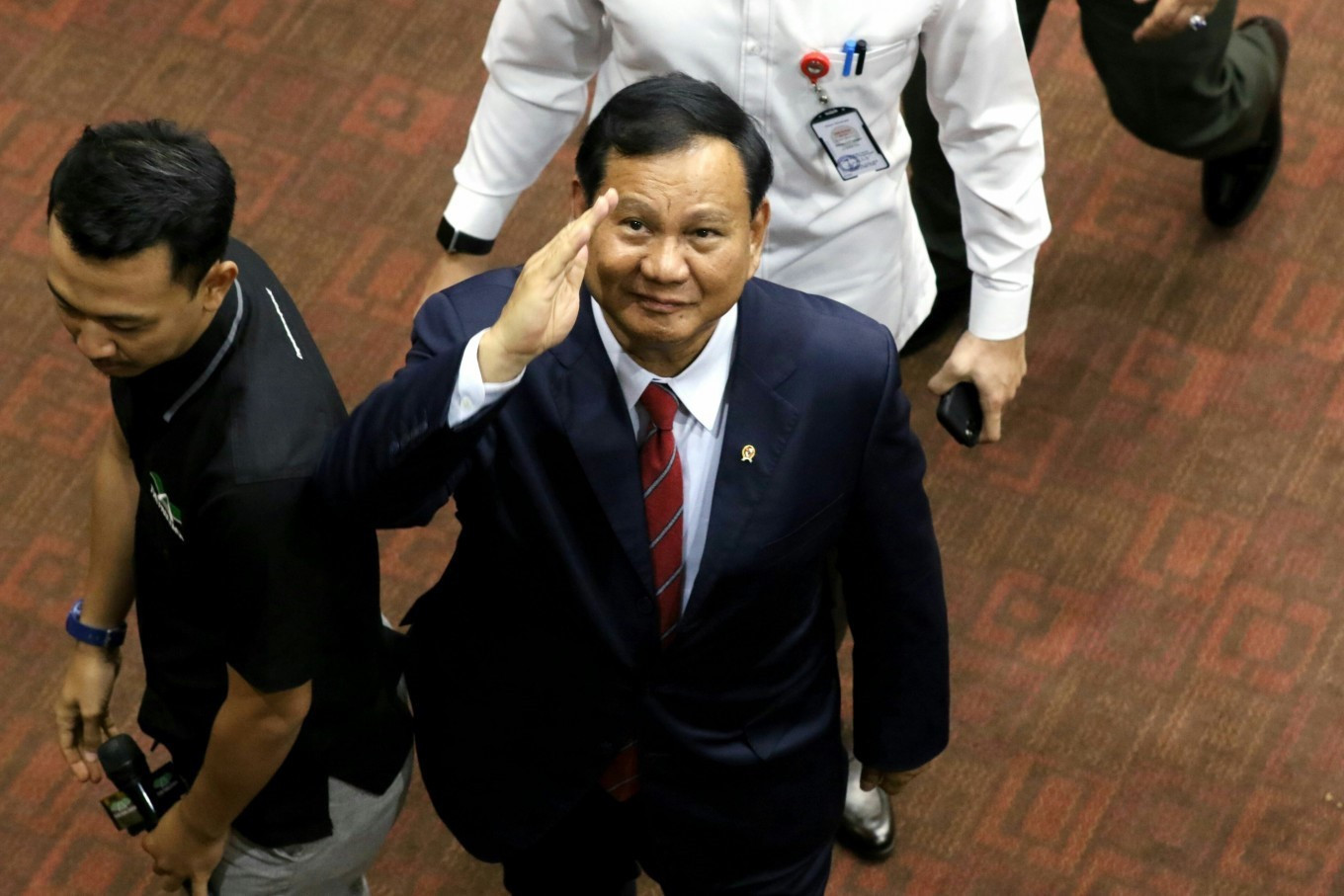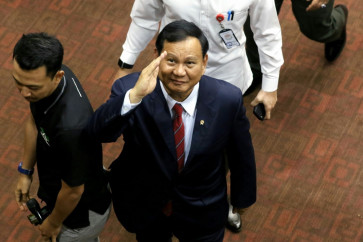Popular Reads
Top Results
Can't find what you're looking for?
View all search resultsPopular Reads
Top Results
Can't find what you're looking for?
View all search resultsAnalysis: Quick counts show Prabowo victory
Change text size
Gift Premium Articles
to Anyone
 Defense Minister Prabowo Subianto attended the inaugural working meeting with the DPR's Commission I at the Senayan Parliament Complex, Jakarta, Monday (11/11/2019). A working meeting between the DPR and the Ministry of Defense (Kemhan) discussed the 2020 Ministry of Defense work plan and its budget support. (JP/Dhoni Setiawan)
Defense Minister Prabowo Subianto attended the inaugural working meeting with the DPR's Commission I at the Senayan Parliament Complex, Jakarta, Monday (11/11/2019). A working meeting between the DPR and the Ministry of Defense (Kemhan) discussed the 2020 Ministry of Defense work plan and its budget support. (JP/Dhoni Setiawan)
Q
uick counts conducted by a number of survey institutes just after the voting on Feb. 14 found presidential candidate Prabowo Subianto and his running mate Gibran Rakabuming Raka garnered the majority of the votes to avoid a runoff. The superiority of the former army general in the quick counts went hand in hand with his persistent dominance in the opinion surveys in the run-up to the elections, despite several controversies, particularly surrounding Gibran’s candidacy.
Only the General Elections Commission (KPU) has the authority to announce the election results through the real count, but quick counts can precisely predict the outcome of an election. The quick counts on Feb. 14 saw the Prabowo-Gibran pair lead their competitors, Anies Baswedan-Muhaimin Iskandar and Ganjar Pranowo-Mahfud MD, by a huge margin.
|
|
Kompas |
Charta Politika |
Indikator Politik Indonesia |
Lembaga Survei Indonesia |
Popularto Read Full Story
or
Purchase access to this article forWe accept


Redirecting you to payment pagePay per article
Analysis: Quick counts show Prabowo victoryRp 35,000 / article
1
Get started by logging in or creating your account
By proceeding, you consent to the revised
Terms of Use, and Privacy Policy.
Don't have an account?
Create your free account
By proceeding, you consent to the revised
Terms of Use, and Privacy Policy.
Already have an account?
2
2




Total
Rp 35,000
Your Opinion MattersShare your experiences, suggestions, and any issues you've encountered on The Jakarta Post. We're here to listen.
Enter at least 30 characters
0
/ 30
Thank YouThank you for sharing your thoughts. We appreciate your feedback. Share optionsQuickly share this news with your network—keep everyone informed with just a single click!
Gift Premium Articles
|









